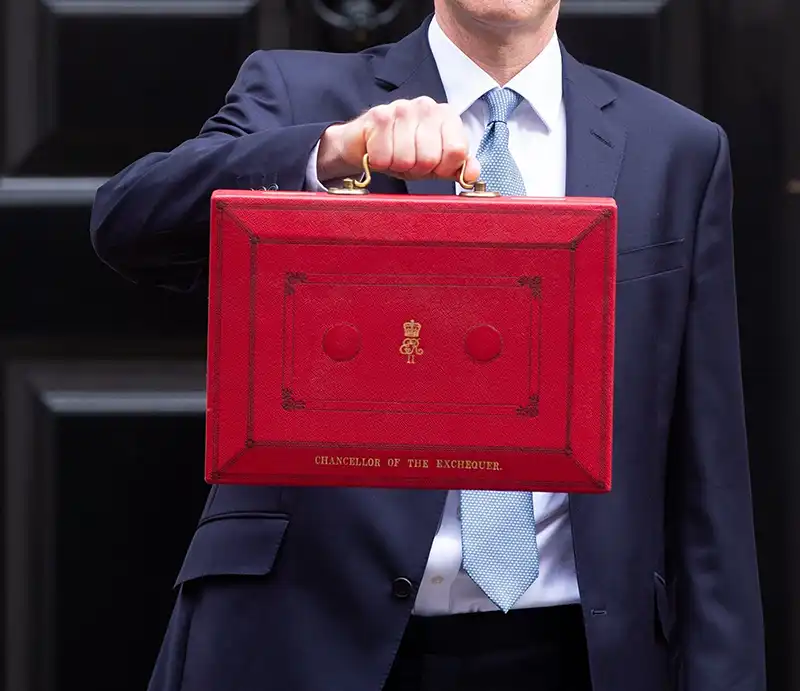Is a Company Car Right for You? A Director’s Guide

Read on before buying a company car
Did you know that just over half of all newly registered vehicles in the UK are owned by a company? Surely that means that they’re raking in a huge tax benefit, right? Have you got your eye on that flashy new BMW? Or how about a fancy new hybrid? The car salesman will probably tell you that a company car can save you and your company a shed-load in tax and make you look super cool at the same time. But is this true?
I can’t speak for the last point I’m afraid. I can tell you though that it’s not always the best route. If you’re a company director and are considering getting a company car, there are many things to consider and you’ll be pleased to hear that it’s not all about tax (but it is a lot about tax). Whether a company director in the UK should get a company car depends on their specific circumstances. First, let’s look at the key differences between having a company car and just a personal car. To find out the pros and cons of having a limited company, click here.
| Company Car | Personal Car |
| The company owns the car | Individual owns the car |
| Running costs, maintenance and finance costs are paid for by the company | Running costs, maintenance and finance costs are paid for by the individual (these are NOT tax-deductible expenses) |
| Fuel costs are covered by the company | Fuel is paid for by the individual but you can claim mileage expenses from the company for any travel done in the normal course of business, not including commuting. |
| Personal fuel can also be covered by the company (this will mean that there is a larger benefit to the employee and so a larger taxable charge) | The individual pays for their personal fuel. |
So, as you may have guessed, the answer, as always, is… it depends. Typically, if you were buying a brand-new car anyway, then it would make sense. We’ll run through a few examples further down. But first, here are some factors to consider when making a decision:
Top considerations for getting a company car
Job requirements: If the director’s role requires frequent travel, a company car could be a valuable benefit. However, if the director mainly works from the office or does not need to travel often, a company car may not be necessary.
Budget: Company cars can be expensive, and it’s important to consider the cost implications for the company. If the company is on a tight budget, it may not be feasible.
Tax implications: Company cars are often considered a taxable benefit in the UK, and directors may be subject to additional tax rules. You can consult with us, Jacksons Accountants, to understand the tax implications for both the company and the director. Want to find out more info on individual taxes and company taxes, click on the links.
Company image: Company cars can promote the company image; successful, savvy, and professional to name a few. It’s worth noting that company directors may be held to higher environmental standards, and it’s important to consider the environmental impact of company cars. Perhaps an eco-friendly option would be a good fit for a company director.
Personal preferences: Ultimately, the decision to offer a company car to a director will come down to personal preferences and needs. If the director requires a car for their role, and the company can afford to provide one, a company car could be a valuable benefit.
The good, the bad and the taxes
Let’s be honest and get into the nitty-gritty of it all. What is it going to cost me to buy a company car? How much can I save if I get a company car? Will I save anything?
What it comes down to is the value of the benefit provided by the company to the individual. This is known as the benefit in kind (BiK). Essentially it is the value HMRC determines you have gained from having the company car in lieu of a payment in cash. The value of the benefit in kind increases the individual’s personal taxable income, which may put them into the 40% higher rate tax band. The company is also liable to pay employer national insurance contributions on the BiK. The % applied to the value of the benefit is dependent largely on the CO2 emissions. Get ahead of the next tax year, check out what you need to do before the end of the tax year.
You can use the HMRC company car calculator to find out the BiK value of your car.
Here are a few examples to compare to your own needs.
Example 1 – Diesel Car
You buy a 4-year-old 1.5-litre diesel estate car from the dealership for £50,000 +VAT in April 2021. You pay a £10,000 deposit and have the remainder financed at 10% over 5 years. You travel 15,000 business miles and 5,000 personal miles. The miles per gallon of the car is 30 and the average cost of diesel over the tax year was £1.75. The CO2 emissions figure is 135g/km. The maintenance costs, insurance and MOT came to £3,500 for the year.
Company car purchase 1st-year costs
The car is worth £50,000. As the CO2 emissions figure is over 50g/km, the capital allowances rate is only 6%. So for the first year, you can claim a capital allowance of £3,000. This isn’t actually a cost as it is the value of the asset being released over time.
The finance costs for the first year are approximately £2,200
The maintenance, insurance and MOT costs are £3,500
Fuel costs for company use are approximately £3,300
And for personal use is £1,100.
The taxable Benefit in Kind value of the car is £16,000 and the taxable Benefit in Kind value of providing personal fuel is £7,626
Therefore, the company pays 13.8% National Insurance on the benefit in kind value, which equals £2,139 + £1,052.39 = £3,191.39
| Expense | Amount | Company Tax saving |
| Capital allowance | £3,000* | |
| Finance costs | £2,200 | |
| Running costs | £3,500 | |
| Company fuel | £3,300 | |
| Personal fuel (optional) | £1,100 | |
| National Insurance contributions | £3,191 | |
| Total | £13,291 | £2,677 |
*Capital allowance is excluded from the total but adds to company tax savings.
On top of this, the director’s personal income rises by £23,126 (the BiK value). Assuming they remain a basic 20% taxpayer, this will cost them £4,625.20 or £9,250.40 for a higher rate of 40% taxpayer. You could also reclaim the VAT on the company fuel costs which would save an additional £550.
Total cost = £14,869
Personal Car Purchase 1st-year costs
The individual incurs all the costs except for the capital allowance and national insurance but can claim back the mileage that the company will claim as an allowable expense.
| Expense | Amount | Company Tax saving |
| Finance costs | £2,200 | |
| Running costs | £3,500 | |
| Company fuel | £3,300 | |
| Mileage claim* | (£5,750) | |
| Personal fuel | £1,100 | |
| Total | £10,100 | £1,092.50 |
*Mileage claim is a transfer between owner and company so it has nil effect on total cost but is a taxable expense.
Total cost = £9,007.50
So, in this case, it makes much more financial sense to buy the car personally rather than through the company.
Example 2 – Hybrid Car
You buy a 1-year-old 1.2-litre hybrid car from the dealership for £50,000 +VAT in April 2021. You pay a £10,000 deposit and have the remainder financed at 10% over 5 years. You travel 15,000 business miles and 5,000 personal miles. The miles per gallon of the car is 60 and the average cost of petrol over the tax year was £1.70. The CO2 emissions figure is 30g/km and also has a zero emission mileage of 40. The maintenance costs, insurance and MOT came to £3,500 for the year.
Company car purchase 1st-year costs
The car is worth £50,000. As the CO2 emissions figure is under 50g/km, the capital allowances rate is 18%. So for the first year, you can claim a capital allowance of £9,000. This isn’t actually a cost as it is the value of the asset being released over time.
The finance costs for the first year are approximately £2,200
The maintenance, insurance and MOT costs are £3,500
Fuel costs for company use are approximately £3,210
And for personal use are £1,070
The taxable Benefit in Kind value of the car is £3,500 and the taxable Benefit in Kind value of providing personal fuel is £1,722
Therefore, the company pays 13.8% National Insurance on the benefit in kind value, which equals £483 + £237.64 = £720.64
| Expense | Amount | Company Tax saving |
| Capital allowance | £9,000* | |
| Finance costs | £2,200 | |
| Running costs | £3,500 | |
| Company fuel | £1,608 | |
| Personal fuel (optional) | £536 | |
| National Insurance contributions | £721 | |
| Total | £8,565 | £3,743.19 |
*Capital allowance is excluded from the total but adds to company tax savings.
On top of this, the director’s personal income rises by £5,222 (the BiK value). Assuming they remain a basic 20% taxpayer, this will cost them £1,044.40 or £2,088.80 for a higher rate of 40% taxpayer. You could also reclaim the VAT on the company fuel costs which would save an additional £268.
Total cost = £4,533.81
Personal Car Purchase 1st-year costs
The individual incurs all the costs except for the capital allowance and national insurance but can claim back the mileage that the company will claim as an allowable expense.
| Expense | Amount | Company Tax saving |
| Finance Costs | £2,200 | |
| Running costs | £3,500 | |
| Company fuel | £1,608 | |
| Mileage claim* | (£5,750) | |
| Personal fuel | £536 | |
| Total | £7,488 | £1,092.50 |
*Mileage claim is a transfer between owner and company so it has nil effect on total cost but is a taxable expense.
Total cost = £6,483.50
So there is a benefit to buying a company car in this instance.
Can I claim the VAT back on my company car?
No, you can’t claim back VAT unless it is a commercial vehicle or a leased vehicle.
HMRC saw that there might be directors exploiting car purchases through their company to save on paying VAT. Therefore, HMRC does not allow you to reclaim the input VAT on a car purchase. So this doesn’t need to be taken into account when considering buying a company car.
If you were to buy a lease car, you can claim 100% back if used solely for business purposes and 50% if it has personal use.
Commercial vehicles, motorcycles, lorries and tractors, can reclaim 100% of the input VAT regardless.
The great benefits of EVs
If I were to do a 3rd example with a brand new fully electric car, then you would see that the first-year capital allowance is 100%, meaning you can deduct the full value of the car in the first year. This is a significant incentive to buy an all-electric vehicle and definitely means that it makes sense to buy this through your company. However, other costs such as EV charge points need to be considered.
The mileage rate for electric vehicles is 9p per mile compared to 45p per mile for combustion engine vehicles.
In the UK, tax rates for electric vehicles used as company cars are generally lower than those for petrol or diesel vehicles. The tax rates for company cars are determined by the vehicle’s CO2 emissions and its list price.
For electric vehicles registered after April 6, 2020, there is no company car tax payable for the 2020-2021 tax year. From April 2021 to March 2022, electric vehicles with zero emissions have a company car BiK rate of 1%, and this will increase to 2% for the following tax year (2022-2023).
From 2023-2024, the tax rates for electric vehicles will increase to 4%, but this is still lower than the rates for petrol and diesel cars. The tax rates for non-electric cars can be as high as 37% for vehicles with high CO2 emissions and a high list price.
It’s important to note that the tax rates can change from year to year, and there may be other factors that impact the tax liability for a company car, such as the director’s personal tax situation and any other benefits in kind that they receive. It’s recommended to seek advice from a qualified accountant or tax advisor to understand the specific tax implications for your situation.
Conclusion
As you have probably deduced, there are significant savings in buying an economical and environmentally better car. This is because of significant savings in fuel economy but also the significant tax benefits offered by the UK government to opt for low-emission cars and even fully electric.
If you would like to discuss your needs in greater depth, please feel free to get in touch for a free, no-obligation consultation.
Looking for an Accountant?
Contact us for accounting support! Simply fill out the form below, and our team of qualified accountants will be in touch with you soon.

















